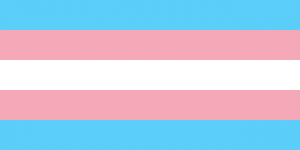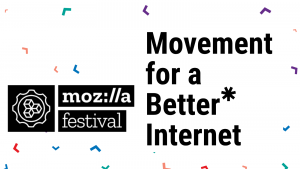CC Supports Trans Rights
jeudi 11 mai 2023 à 19:27
At Creative Commons, we vehemently condemn the extensive violations of trans rights that are occurring across the world, and the current climate of fear and violence directed at trans individuals. We stand firmly against any and all forms of transphobia, including but not limited to bigotry, violence or persecution based on gender identity, and we affirm that trans rights are human rights  .
.
As an international nonprofit organization, with a diverse global community that believes in democratic values and free culture, the protection and affirmation of all human rights — including trans rights — are central to our core value of global inclusivity and our mission of promoting openness and providing access to knowledge and culture. We believe much of the hate and discrimination that trans communities are facing is connected to misinformation and myths, highlighting the need for greater global access to and better sharing of information, culture and knowledge — and there is no better way to achieve this than to open them up: open science, open culture and open education are the keys to unlocking essential information and upholding trans rights.
Recently, we witnessed [1] book bans and educational restrictions on content related to trans rights and experiences, along with other bans of books related to other marginalized identities. These acts of censorship limit public access to important information, perpetuating misinformation, prejudice and discrimination.
As an employer of a small team of diverse individuals, and a steward of a global community of open advocates, CC is committed to equity, diversity, and inclusion. Trans individuals are an important part of our community, and we affirm our commitment to providing a safe, supportive, and welcoming environment for trans people within the workplace and the broader CC community. We also acknowledge the unique challenges that trans individuals may face in areas such as access to health care, housing and employment, and we commit to advocating for policies that address these issues. We recognize that these attacks on human rights also impact or prevent access to open knowledge and open culture. Unjust laws and acts of censorship and bigotry limit peoples’ ability to share knowledge, partake in our shared commons, and learn — these run counter to our mission.
We understand that language and terminology around gender and identity may be complex and constantly evolving. As such, we are committed to educating ourselves and others to ensure we use language that is inclusive and affirming. We also recognize the importance of legal protections for trans people, and support legislation that upholds the rights of trans individuals to live free from discrimination, harassment, and violence.
As part of this commitment, CC is working to update the codes of conduct to help shape experiences in our community and our team, so they explicitly cover trans rights, are consistent across and surfaced in all CC contexts, are clear in their language and processes, and are adopted by all community and team members.
By reflecting on our actions and prioritizing a culture of understanding and empathy, collectively we have the power to create a world where everyone is treated with dignity, respect, and equity no matter their gender identity or expression.
[1] “Book Bans LGBTQ+ Reading.” The 19th, 2023, https://19thnews.org/2023/02/book-bans-lgbtq-reading/
The post CC Supports Trans Rights appeared first on Creative Commons.
 CC has been exploring what artificial intelligence means for our strategy to support
CC has been exploring what artificial intelligence means for our strategy to support